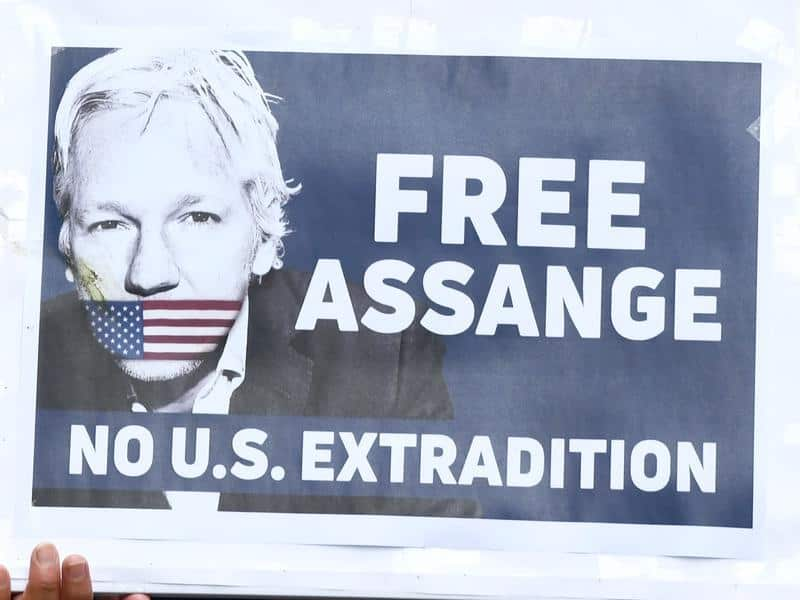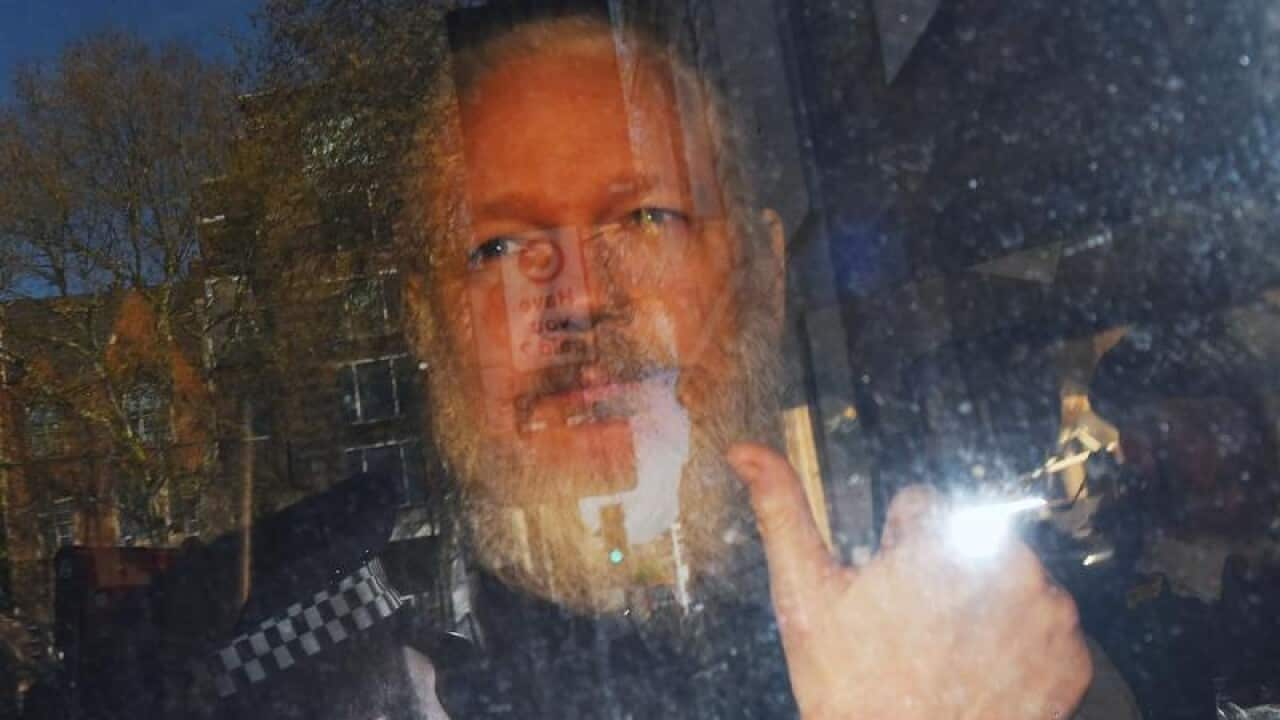In dramatic scenes, Julian Assange was dragged out of the Ecuadorian embassy in London by British Police last week.
He is now facing charges for breaching bail conditions by claiming asylum in the embassy.
That could lead to his extradition, which could mean he has to go to Sweden to face charges of sexual assault; but the United States also wants him extradited to face their courts, on charges of conspiring to break into a Pentagon computer system.
It's possible that, if he is sent to Sweden, he may then be extradited to the United States.

Julian Assange following his arrest. Source: AAP
His lawyer, Jennifer Robinson, has told Sky News it is extradition to the US that worries Assange.
"This case is and has always been about his concern about being sent to face American injustice. We've been warning since 2010 and I've been working on his case since the initial Swedish request came through," she said.
“We've been warning since then that he would face the risk of US extradition for actions and his work associated with WikiLeaks publications. We warned for years and that is precisely what has happened. He was right all along."
Ms Robinson said Assange has always cooperated with the Swedish investigation, even remaining in the country to answer questions about the assault case.
She said the reason he sought asylum was that there was no guarantee that Sweden would not allow his extradition to the US.

Supporters of Julian Assange holding up placards at a rally. Source: AAP
Britain's opposition leader Jeremy Corbyn said it's right for Assange to answer questions about the Swedish assault, but he said he is also concerned about his possible further extradition to the US.
"I've made it very clear all along that if there are allegations which Julian Assange needs to answer of sexual issues, sexual attacks that may or may not have taken place in Sweden, then it's a matter for the courts to decide. But I do think he should answer those questions”, he said.
“My objections are in regards to his extradition to the United States because I do believe that WikiLeaks told us the truth about what's actually happening in Afghanistan and in Iraq."
The current editor-in-chief of WikiLeaks, Kristinn Hrafnsson, is an Icelandic investigative journalist who was appointed by Julian Assange in September 2018.
He said the actions that Assange took were those of an investigative journalist and not a criminal cyber-hacker.
Mr Hrafnsson said he will never be able to face a fair trial in the United States.
“He should not be extradited on the basis that he was simply doing journalism, journalistic activity and giving the political atmosphere in the (United) States, all the declarations that have been given there, make it absolutely obvious that he cannot have a fair trial there”, she says.
The US case against Assange raises questions that concern journalists in America.
Professor Raju Narisetti from the Columbia University School of Journalism said many of the groups that fight for press freedoms are going to be involved in making sure that whatever happens in court doesn't lead to a precedent.
He said it could have a chilling effect on important investigations.
“It's problematic because the way the Justice Department seems to be looking at it they are covering lots of things that normal journalists do. But it is also essential for press freedom which is how do you cultivate sources? How do you protect the identity of sources? How do you have secure communications with those sources? So if you prosecute him on all those issues as well then it's clearly a problematic situation for journalists."
But Mr Narisetti admits that Assange's own credentials as a journalist are not clear-cut.
"He is if you define journalism as a pursuit of truth. He is not because he has an odious behaviour that disregards the standards and ethics of journalism."
Kristinn Hrafnsson insists that WikiLeaks' contribution - including thousands of memos, cables and other documents about US war efforts in Iraq and Afghanistan, and more recently the Panama Papers, have changed the world of reporting.
"There should be no doubt in anybody's mind, the contribution to journalism that Julian Assange and WikiLeaks had in the last decade and I have been a part of that, which is multi-fold and it would take me a bit of time to go through all of that”, he said
Assange's next court appearance is on 2 May via video link.

